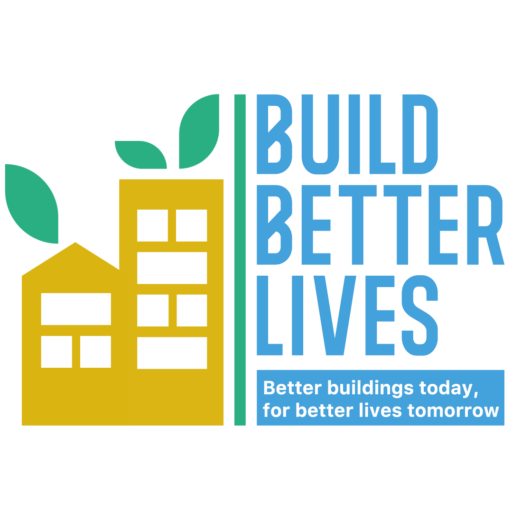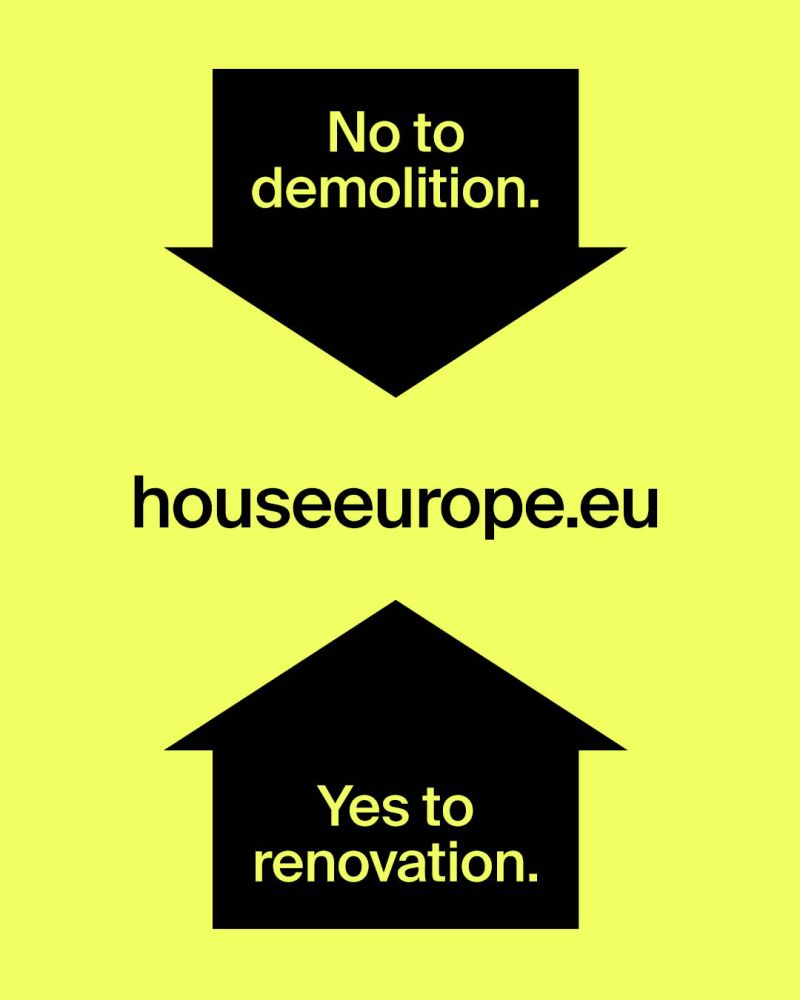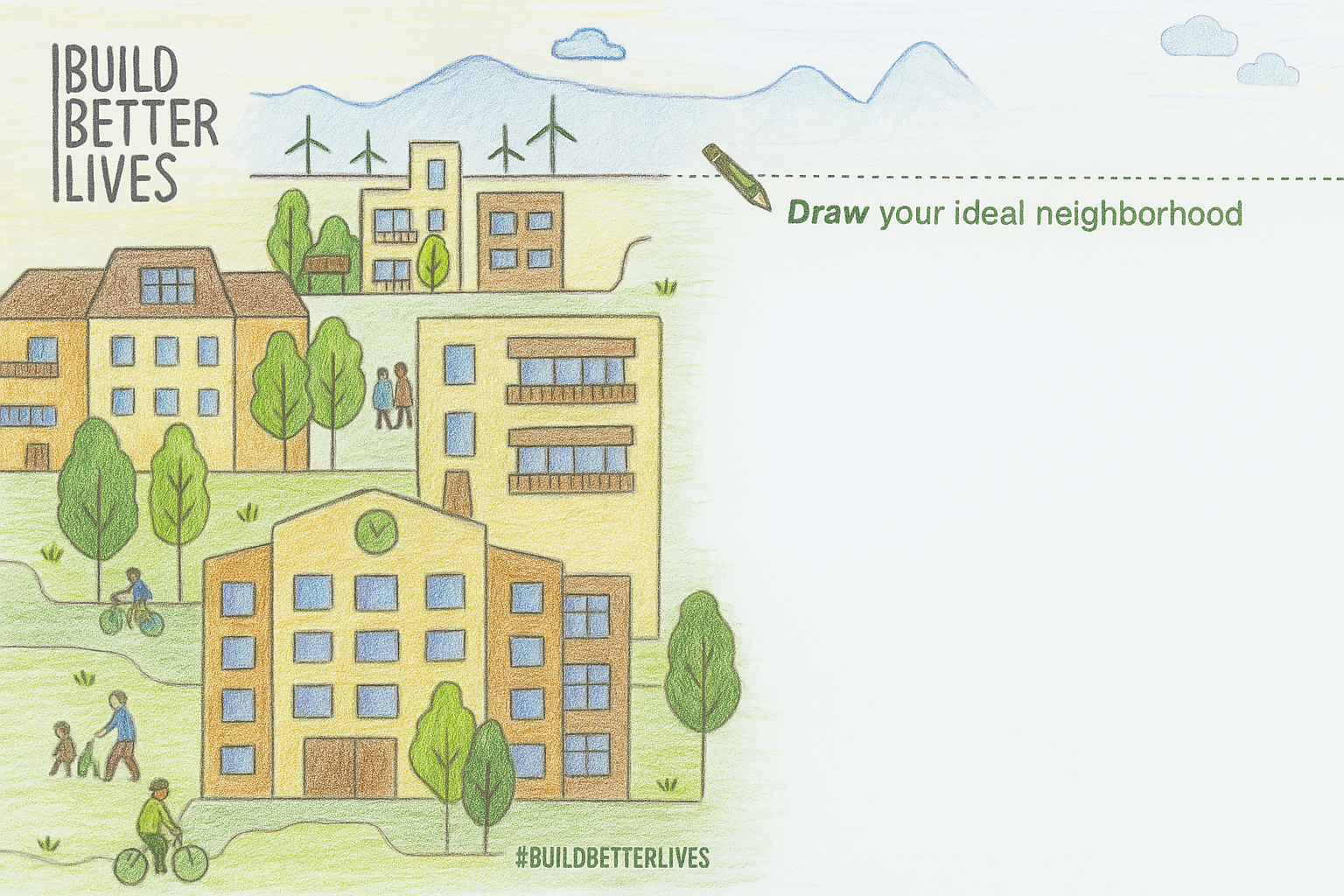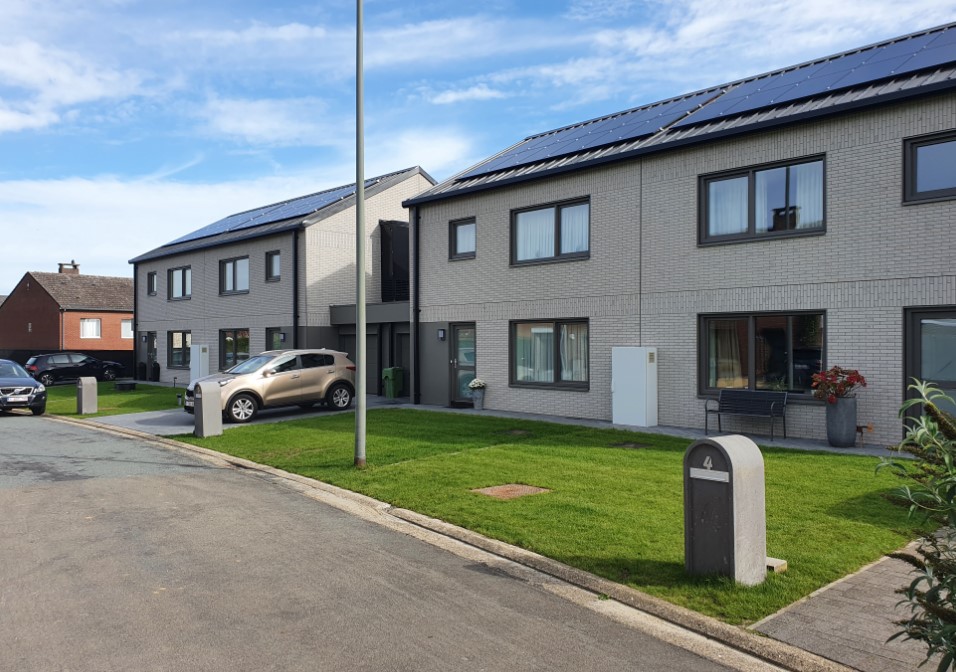
Hoeselt, BELGIUM
Project led by BAM Interbuild
The Sociale EnergieSprong project in Hoeselt, Belgium, exemplifies how industrial innovation, strong social commitment, and people-centred policies can transform social housing. By focusing on speed, affordability, and sustainability, this initiative establishes a bold benchmark for tackling the challenge of an aging housing stock while providing meaningful benefits to both residents and the environment.
Tackling energy demand reduction through innovative renovation approaches
A key strength of Sociale EnergieSprong lies in its groundbreaking use of industrialised renovation techniques, enabling deep energy retrofits with minimal disruption to residents. This innovative approach has significantly accelerated renovation timelines while ensuring high-quality, energy-efficient outcomes.
At the core of this strategy are prefabricated building solutions. Factory-produced external cladding, energy modules, and insulated building envelopes allowed renovations to be completed in just nine days per dwelling, a remarkable achievement that ensured residents could remain in their homes throughout the process.
The project also implemented integrated energy systems, transforming homes into zero-emission dwellings. Equipped with heat pumps, balanced ventilation, and solar panels, these homes now operate at energy neutrality, aligning with Flemish climate objectives for 2050 and reducing long-term energy costs.
To enhance efficiency, technology-driven precision was a key component. Building Information Modeling (BIM) and drone-based 3D scanning streamlined planning and execution, ensuring accuracy, reducing material waste, and optimising resource use.
By embracing industrialised and highly efficient methods, Sociale EnergieSprong has not only lowered energy demand but also established a scalable and replicable model for future sustainable renovations.
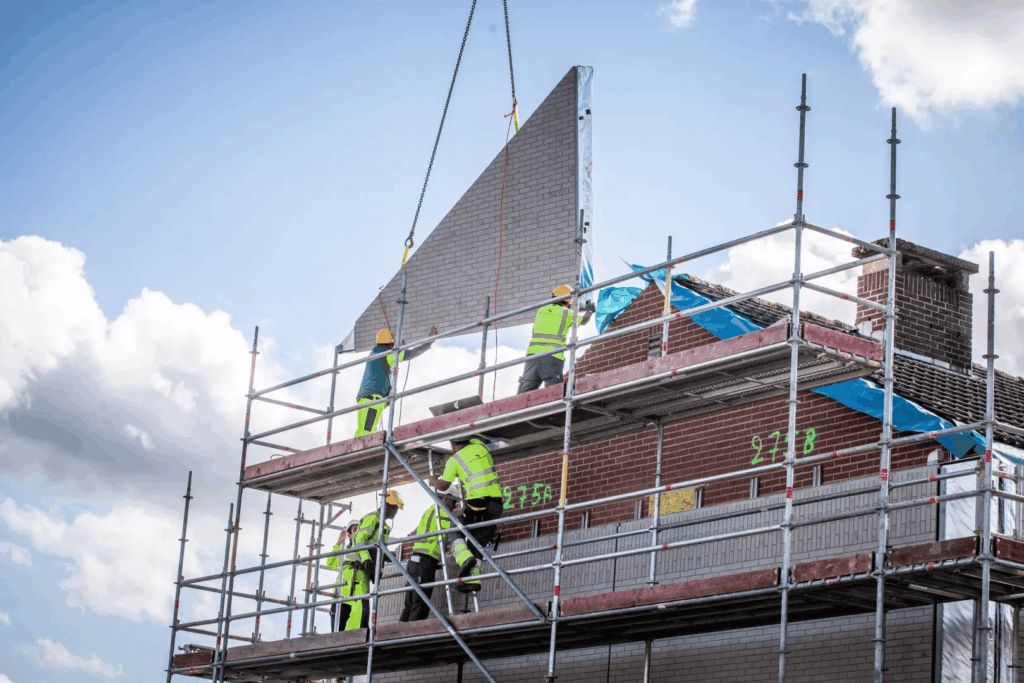
Decarbonising to enhance flexibility in electricity use
Sociale EnergieSprong exemplifies how decarbonization can drive both environmental and economic benefits while equipping residents with a more flexible and resilient energy system. By combining cutting-edge energy solutions with affordability, the project proves that sustainable housing can be both practical and transformative.
The impact is most evident in energy savings and emissions reductions. The project achieved an 89% reduction in heat demand, an 80% decrease in energy bills, and a 90% drop in carbon emissions per household. These improvements translate into annual savings of approximately € 2,000 per resident, making sustainability financially accessible.
To further optimise efficiency, the project introduced smart energy management systems. These intelligent monitoring tools provide real-time insights, helping residents align their energy use with renewable generation. This proactive approach enhances flexibility and maximises the consumption of clean energy, reducing reliance on external power sources.
Crucially, the project has also achieved fossil fuel independence. By relying entirely on green electricity, it demonstrates that housing can transition away from fossil fuels while actively supporting the broader decarbonisation of the energy grid.
This shift to renewable energy solutions underscores the importance of designing housing models that not only lower carbon footprints but also deliver long-term economic advantages to residents, proving that sustainability and affordability can go hand in hand.
Staying rent-neutral while unlocking benefits
Affordability is at the core of Sociale EnergieSprong, ensuring that ambitious renovations lead to better lives without increasing the financial burden.
Following the renovations, rents increased, but these higher costs were fully offset by substantial energy savings, resulting in rent neutrality through energy savings. As a result, residents’ overall housing expenses remained stable, while they enjoyed homes that were both more comfortable and more sustainable.
The renovations also led to improved living conditions, with significant enhancements in thermal comfort, air quality, and sound insulation. These improvements created healthier, quieter, and more enjoyable living environments for all residents.
In addition, water conservation was achieved through the introduction of greywater reuse systems, including Hydraloop technology and IBA bacterial treatment, which successfully reduced water demand by 35%. This reduction not only lowered costs for residents but also delivered important environmental benefits.
By prioritising rent neutrality and delivering a range of socio-environmental improvements, Sociale Energie Sprong proves that sustainable renovations can directly contribute to building better lives for residents.
A vision for scalable and sustainable housing
The success of Sociale EnergieSprong has far-reaching implications for social housing in Belgium and beyond. Its innovative, cost-effective model has inspired the Flemish government to expand its application across other districts, showcasing its potential as a scalable solution to housing challenges.This project demonstrates that aging social housing stock can be renovated quickly and efficiently without requiring tenant relocation, creating decent and affordable living spaces. At the same time, it reduces reliance on fossil fuel heating and integrates the buildings into a future-proof energy system that supports demand response and significantly lowers energy consumption. By improving affordability, reducing environmental impact, and enhancing quality of life, Sociale Energie Sprong contributes to building better lives for today’s residents while setting the stage for a more sustainable future.

